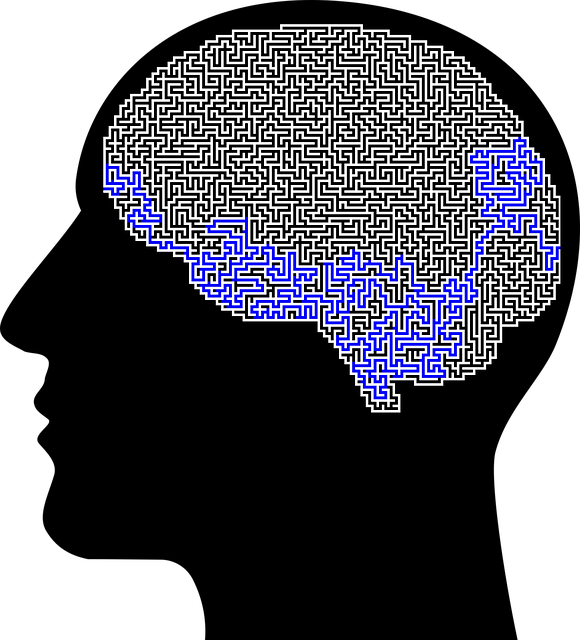Louisville Anxiety Therapy (LAT) offers a community-focused approach to mental health support in Louisville, targeting anxiety disorders prevalent among local demographics. By directly engaging residents and healthcare providers, LAT provides direct assistance while teaching burnout prevention and stress management techniques for a holistic well-being strategy. This inclusive initiative aims to build a supportive network, reduce stigma, and enhance the resilience of Louisville's inhabitants through tailored interventions and education. LAT's success relies on understanding specific community needs, collaborating with local leaders, and using data-driven methods to evaluate impact, ultimately fostering positive mental health outcomes for the diverse city.
Louisville has embraced a community-centric approach to anxiety therapy, revolutionizing mental health support through innovative outreach programs. This article explores the transformative power of these initiatives, highlighting their benefits for underserved populations. We delve into identifying specific target groups, tailoring services accordingly, and implementing successful strategies. By measuring impact and fostering sustained change, Louisville Anxiety Therapy is making a lasting difference, offering hope and improved well-being to those in need.
- Understanding Louisville Anxiety Therapy: A Community-Centric Approach
- The Benefits of Community Outreach Programs for Mental Health Support
- Identifying Target Groups and Tailoring Services Effectively
- Strategies for Successful Program Implementation and Community Engagement
- Measuring Impact and Sustaining Long-Term Change in Louisville
Understanding Louisville Anxiety Therapy: A Community-Centric Approach

Louisville Anxiety Therapy represents a community-centric approach aimed at addressing mental health challenges prevalent in the city. This initiative goes beyond traditional therapy models by engaging the community directly, fostering a collaborative environment for support and education. The program’s core philosophy revolves around understanding and alleviating anxiety disorders, which significantly impact individuals across various demographics in Louisville.
By adopting this community-focused strategy, Louisville Anxiety Therapy not only offers direct assistance to those seeking help but also empowers residents with tools for burnout prevention strategies for healthcare providers. It integrates stress management and mood management techniques into its curriculum, ensuring a holistic approach to well-being. This inclusive methodology is designed to create a supportive network, encourage open dialogue about mental health, and ultimately enhance the overall resilience of Louisville’s inhabitants.
The Benefits of Community Outreach Programs for Mental Health Support

Community outreach programs play a pivotal role in enhancing mental health support within underserved communities, particularly in cities like Louisville where access to specialized services might be limited. These initiatives reach individuals who often face barriers to care, such as stigma, transportation issues, or financial constraints. By bringing mental wellness coaching programs directly to the community, residents can receive essential education and support tailored to their unique needs. This approach not only promotes early intervention but also fosters a sense of belonging and empowerment, which are crucial factors in managing conditions like anxiety.
The implementation of effective community outreach strategies, such as those focused on burnout prevention for healthcare providers, has the potential to revolutionize mental health care. It ensures that valuable resources are distributed equitably, improving overall mental wellness in the community. Louisville Anxiety Therapy benefits greatly from these programs, as they contribute to a more inclusive and accessible support system, ultimately leading to better outcomes for individuals seeking assistance for their mental health journeys.
Identifying Target Groups and Tailoring Services Effectively

Effective community outreach programs require a keen understanding of the target groups they aim to serve. Identifying specific demographics, such as individuals struggling with anxiety in Louisville, allows for tailored services that address their unique needs. Mental health professionals must assess not only the prevalent mental health issues within these communities but also consider factors like cultural sensitivity and access to resources. By understanding barriers to care, service providers can implement innovative solutions, ensuring that programs are inclusive and accessible.
Tailoring services means developing specialized interventions for different target groups. For instance, Louisville Anxiety Therapy could offer group sessions focused on stress reduction methods for young adults, while also providing one-on-one therapy for at-risk populations. Emotional well-being promotion techniques should be adapted to resonate with diverse audiences, considering age, gender, and cultural backgrounds. This strategic approach enhances the impact of outreach programs, fostering positive mental health outcomes within the community.
Strategies for Successful Program Implementation and Community Engagement

Implementing community outreach programs like Louisville Anxiety Therapy requires a strategic approach to ensure maximum engagement and impact. One key strategy is to assess the risk associated with mental health initiatives in the specific community. This involves understanding local needs, cultural sensitivities, and potential barriers to access. For instance, a risk assessment for mental health professionals can help identify and mitigate risks related to safety, ethical considerations, and cultural competency, especially when working with diverse populations.
Cultural sensitivity in mental healthcare practice is another vital aspect. Programs should be tailored to respect and incorporate the cultural values and beliefs of the community they serve. Effective outreach involves building relationships with local leaders and organizations, co-creating programs that address identified needs, and ensuring mood management strategies are inclusive and accessible. This collaborative approach fosters trust, enhances engagement, and promotes positive outcomes for mental health services in the community.
Measuring Impact and Sustaining Long-Term Change in Louisville

Louisville has seen significant progress in mental health awareness, thanks to dedicated community outreach programs. Measuring their impact is crucial for sustaining long-term change. Organizations like the Louisville Anxiety Therapy (LAT) group play a vital role in this process by evaluating program effectiveness through data-driven methods. They assess key metrics such as participant attendance, feedback from workshops on stress management and mood management, and post-program mental health assessments to gauge improvements.
By focusing on these aspects, LAT ensures that their initiatives resonate with the community and lead to tangible benefits. The organization’s goal is not just to offer immediate relief but to foster long-lasting strategies for managing stress and improving overall well-being. This comprehensive approach encourages ongoing engagement and empowers individuals to take control of their mental health, creating a healthier Louisville.
Louisville Anxiety Therapy has demonstrated that community outreach programs can significantly enhance mental health support. By understanding the needs of specific communities, tailoring services effectively, and implementing successful engagement strategies, these initiatives can lead to measurable impacts. This approach not only addresses immediate concerns but also fosters long-term change, ensuring a healthier and more resilient Louisville.














